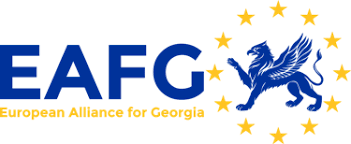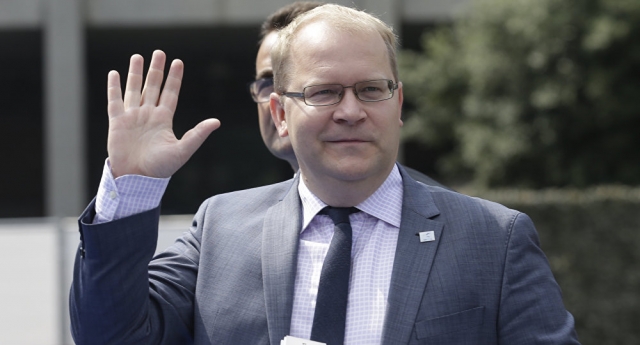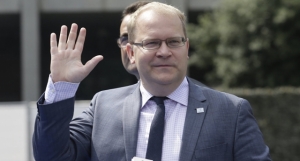Estonian MEP on the Way forward for Georgia’s European Aspirations
Exclusive interview by Vazha Tavberidze
Estonia is one of the more resilient strategic partners that Georgia can turn to nowadays, with the country an outspoken supporter of Georgia’s coveted aim, EU and NATO membership, plus the fact their know-how in cyber security is second to none. For yet another episode of the “Messages from Brussels” series, we sat down with the former Minister of Foreign Affairs and now an Estonian MEP, Urmas Paet, to talk more about the Baltic experience and what Georgia can learn from it.
How did the Baltic countries manage to achieve what is still unmanageable for Georgia?
Internally, in Estonia, one of the most important elements was that there was quite a large consensus in society from the very beginning, even from the late 80s, that we’d like to be free again, because Estonia was independent between 1918-1940. The sense and also the memory of being free, of having an independent country, was still there. When at the end of 80s we saw that something was changing in the Soviet Union and especially in the early 90s when it was clear that it was going down-hill, there was high-level unity in society as to where we wanted to go. It was clear that we wanted to rejoin Europe; as soon as possible become a part of that Western Society. Also relevant was the fact that during the Soviet occupation, we were able to see Finnish television programs and have contacts with Estonians who had left the country to live in Sweden, the US or Canada. This personal touch made a difference.
One thing is fighting for freedom and another thing is acquiring and managing it. Estonia is considered part of the European narrative, something not seen in Georgia’s case
I think it’s there. But it doesn’t explain 100% why things went differently for our two countries in the past 20-25 years. A very important part of this was that the new Estonian political elite worked hard to totally transform society with regards rule of law and various liberties. Even without being a member of the EU, if you look at international data, Estonia was quite high in freedom of press, rule of law, etc. Plus the neighborhood helps: Finland, Sweden, Denmark. We always compared ourselves with Scandinavia; but Scandinavian societies are undoubtedly on top.
Russia opposes the expansion process, as seen in 2008, following on from the big enlargement in 2004 when we saw Romania and Bulgaria join the EU
Yes. Russia realizes that it’s not only NATO but also the EU that somehow challenges its view of how the former Soviet Union area should be, especially in the case of Ukraine. But the enlargement in 2004 and 2008 also created enlargement “fatigue” within the EU itself due to the jump to 28 member states.
In 2013 it was said that the Eastern Partnership is not an anti-Russian project per se, but we see that Russians don’t share your view regarding this. What do you think is the way forward when it comes to Georgia’s European aspirations?
We see it as very difficult, perhaps even impossible to change their attitudes; we saw it during the last two years. The biggest part of what we can do is first focus on what Georgia can do at home: the level of the rule of law, freedom of press, the liberties, economic freedoms and so on and also the life standard plays an important role. Of course the neighborhood of Georgia is difficult. No one argues it. Especially the case of Russia and what happened to South Ossetia in 2008; but still it’s crucial that Georgia keeps on developing the above aspects.
Georgia hears it needs to continue its reforms, but we don’t hear the uncertainties regarding the true state of affairs in standards in Georgia compared to those of the EU
I guess this element exists in discussion. And look at the international rankings, records and tables on which Georgia is playing, showing where Georgia is with freedom of press, freedom of doing business etc. This is at least a part answer for those with questions and uncertainties about Georgia.
Georgia ranks higher than Bulgaria and Greece and it has better press freedom than some of the later EU member countries. Some Georgian citizens ask if double standards are at play
Double standards may not be the right phrase; there are different standards. There is a reality which applies to geographical or geopolitical location which has an influence. If Georgia were where Iceland is, for example, with no aggressive neighbors, of course, this aspect would be again emotionally or politically different. I also recall 2008-2009 and the Georgia-Russia war; there was discussion about the future of NATO membership for Georgia, it’s no big secret that there are people in European politics who ask if we’re really ready to go to war with Russia because of Georgia. Of course, if Georgia had been a NATO member then, the response would have been different.
There are many who think that had the West responded more strongly in 2008, there would not have been the events of 2014 in Ukraine
If we look at Crimea, and the case of Georgia, including South Ossetia and Abkhazia, they are still different stories; the end is clear that Russia broke international law, but if you look deeper into the subject, different stories appear. Even if there had been a much stronger reaction to 2008, I don’t think it necessarily would have prevented what we saw in 2014 in Crimea.
This year, aside from the 10th anniversary since the war, it is also the anniversary of that famed Bucharest Summit at which Georgia was promised MAP. Is Georgia any closer to MAP now?
I would say so. In 10 years Georgia has made lots of practical efforts domestically and internationally, so it has its value and meaning. Many NATO countries today are less naïve concerning Russia, as after the 2008 events and ongoing events in Ukraine, they woke up.
There’s still that skepticism about Georgia, though, coming from France and Germany
There’s no easy solution. Georgia is still at risk of confrontation with Russia, though the situation is more favorable than it was 10 years ago, and this is stuck in the minds of many politicians in Europe and NATO. It’s not easy but there really is no other choice but for Georgia to keep on track, to develop practical cooperation in the military field with NATO countries and the EU; to keep up with the EU standards of rule of law, press freedom, and so on: moving step-by-step to get better positions on those international rankings.

This material was prepared in the scope of the “Messages from Brussels” series, a project of the European Alliance for Georgia, a Brussels-based NGO aiming to bring more Georgia into Europe.












